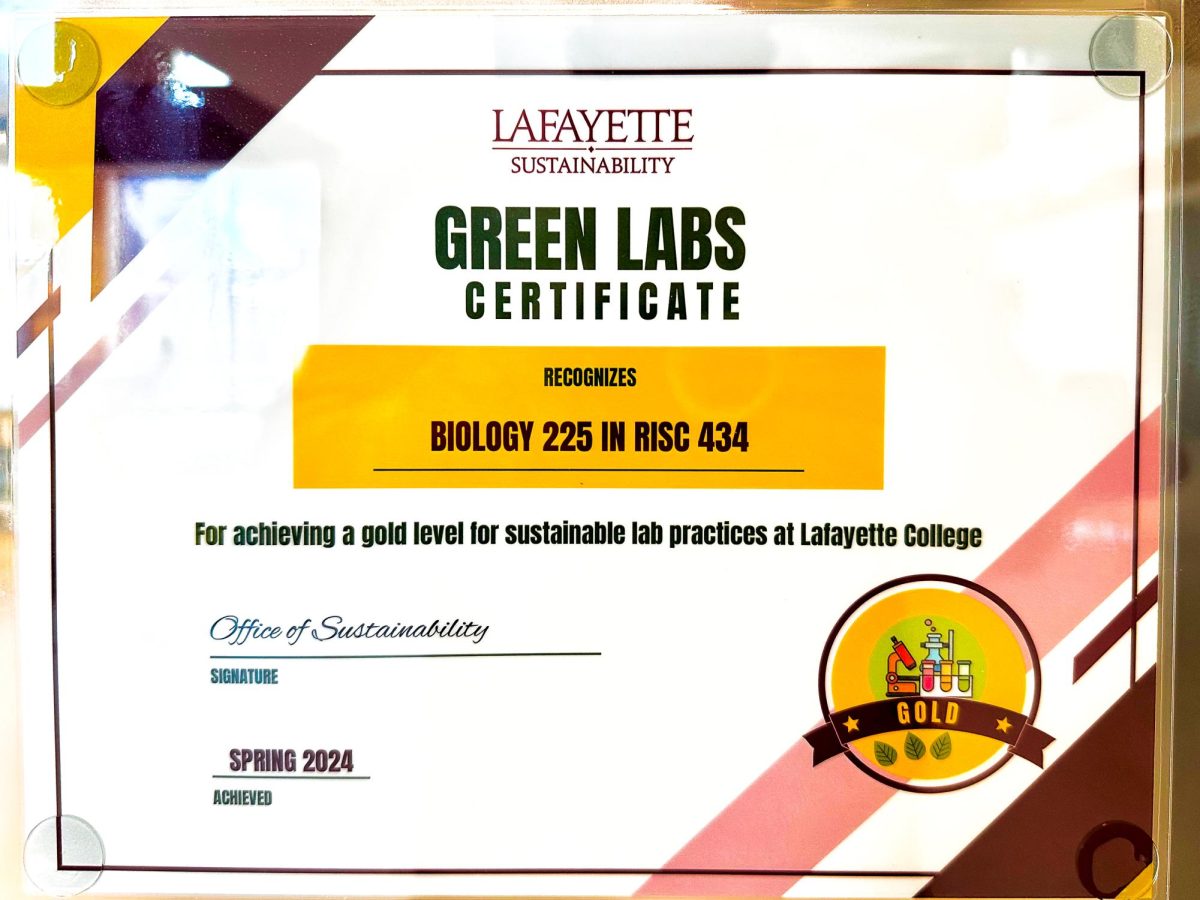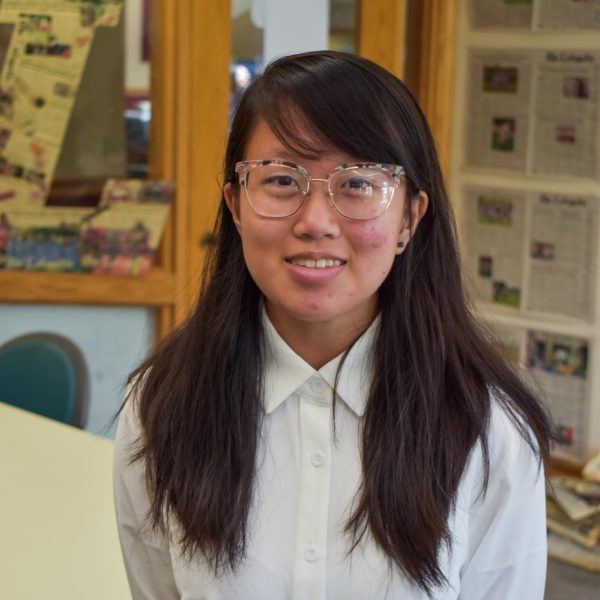The Green Labs Program is the latest step forward from the Office of Sustainability as a part of the international movement to reduce waste and energy use in classroom labs. Four biology teaching labs became certified at the start of the spring semester with more on the way.
“Lab spaces are often very resource intensive in terms of the energy they use, the water they might use, the resources they use in terms of plastics,” said Melissa Adamson, climate action and circularity manager in the Office of Sustainability. “So, being intentional about how we plan and operate lab spaces can help reduce some of that resource intensity.”
According to Adamson, for a lab to become certified, interested parties such as a professor or student can fill out an interest form and view the lab checklist, created with a common framework from other schools, on the Office of Sustainability’s website. Once the interest form is completed, a representative from the Office of Sustainability will reach out to help review the checklist and identify current sustainable practices and future practices or changes.
Practices such as using the lowest grade water possible, turning off lab equipment when not in use and recycling equipment have assigned point values and contribute to earning a Bronze, Silver, Gold or Platinum certification. Labs may also apply again and move up in certification.
Mia Day ‘24 is a metrics and reporting intern at the Office of Sustainability who has been involved in the Green Labs Program since last year.
“I had met with professors when we were in the beginning stages of developing the program, just to figure out what sort of action items would be feasible for different lab spaces to complete and for getting information about what type of recommendations we should be making for these green lab practices,” Day said.
Jeff Norman, teaching and research support specialist and adjunct professor in the biology department, was contacted by the Office of Sustainability for the program last semester and has been assisting professors with the initiative.
To certify Professor Laurie Caslake’s microbiology class, the group stopped using individual propane tank flames and reduced gloves at the suggestion of the form.
While adjusting, classes have experienced changes in habits.
“The big thing in micro is to stop throwing gloves in the garbage can, which is going to be a big learning experience for students,” Caslake said. “I put tape on the front of every garbage can that says ‘no gloves,’ and I still am finding gloves in there.”
Chemistry and engineering labs are in the process of having conversations with the Office of Sustainability to also begin the process of certification. The office is looking forward to potentially expanding to include research labs and art studios after the initiative has spent around two years in the development phase. By building on the Sustainable Office Program, the school has been able to continue to promote sustainable practices.
“We’re trying to improve the education around why we’re doing this program,” Adamson said. “How labs are really resource-intensive spaces, from an energy perspective, from a waste perspective, but how the small actions in all the labs on campus are taking them can add up to a bigger change overall.”
In the biology department, the Green Labs Program has allowed the department to pursue projects it would not have otherwise.
“I think it’s accomplishing what it’s supposed to so far,” Norman said of the program.
Norman said that because of the program, he reflected on increasing sustainable trash practices within the department. The ideas have “always been in the back of his mind,” but were catalyzed by Adamson’s vision for the program.
“It’s always good if we can save energy and materials,” Caslake said. “That is more important to me than having a sign on the wall that says we’ve accomplished this.”







































































































